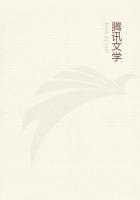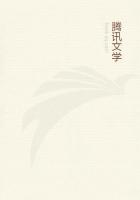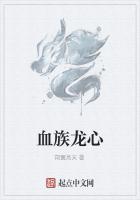However correct, they differ too much from what is usually said and asserted at home. I should wish some enlightened and unprejudiced Frenchmen to come to Prussia and make this country their study. They would soon discover that they were living in the midst of a strong, earnest, and intelligent nation, entirely destitute, it is true, of noble and delicate feelings, of all fascinating charms, but endowed with every solid virtue, and alike distinguished for untiring industry, order, and economy, as well as for patriotism, a strong sense of duty, and that consciousness of personal dignity which in their case is so happily blended with respect for authority and obedience to the law. They would see a country with firm, sound, and moral institutions, whose upper classes are worthy of their rank, and, by possessing the highest degree of culture, devoting themselves to the service of the State, setting an example of patriotism, and knowing how to preserve the influence legitimately their own. They would find a State with an excellent administration where everything is in its right place, and where the most admirable order prevails in every branch of the social and political system. Prussia may be well compared to a massive structure of lofty proportions and astounding solidity, which, though it has nothing to delight the eye or speak to the heart, cannot but impress us with its grand symmetry, equally observable in its broad foundations as in its strong and sheltering roof.
"And what is France? What is French society in these latter days?
A hurly-burly of disorderly elements, all mixed and jumbled together; a country in which everybody claims the right to occupy the highest posts, yet few remember that a man to be employed in a responsible position ought to have a well-balanced mind, ought to be strictly moral, to know something of the world, and possess certain intellectual powers; a country in which the highest offices are frequently held by ignorant and uneducated persons, who either boast some special talent, or whose only claim is social position and some versatility and address. What a baneful and degrading state of things! And how natural that, while it lasts, France should be full of a people without a position, without a calling, who do not know what to do with themselves, but are none the less eager to envy and malign every one who does....
"The French do not possess in any very marked degree the qualities required to render general conscription acceptable, or to turn it to account. Conceited and egotistic as they are, the people would object to an innovation whose invigorating force they are unable to comprehend, and which cannot be carried out without virtues which they do not possess--self-abnegation, conscientious recognition of duty, and a willingness to sacrifice personal interests to the loftier demands of the country. As the character of individuals is only improved by experience, most nations require a chastisement before they set about reorganising their political institutions. So Prussia wanted a Jena to make her the strong and healthy country she is."(8) Yet even in De Tocqueville's benevolent nature, there was a pervading element of impatience. In the very letter in which the above passage occurs, he says: "Some persons try to be of use to men while they despise them, and others because they love them.
In the services rendered by the first, there is always something incomplete, rough, and contemptuous, that inspires neither confidence nor gratitude. I should like to belong to the second class, but often I cannot. I love mankind in general, but Iconstantly meet with individuals whose baseness revolts me. Istruggle daily against a universal contempt for my fellow, creatures."--MEMOIRS AND REMAINS OF DE TOCQUEVILLE, vol. i. p.
813. (Letter to Kergorlay, Nov. 13th, 1833).
(9) Gleig's 'Life of Wellington,' pp. 314, 315.
(10) 'Life of Arnold,' i. 94.
(11) See the 'Memoir of George Wilson, M.D., F.R.S.E.' By his sister (Edinburgh, 1860).
(12) Such cases are not unusual. We personally knew a young lady, a countrywoman of Professor Wilson, afflicted by cancer in the breast, who concealed the disease from her parents lest it should occasion them distress. An operation became necessary; and when the surgeons called for the purpose of performing it, she herself answered the door, received them with a cheerful countenance, led them upstairs to her room, and submitted to the knife; and her parents knew nothing of the operation until it was all over.
But the disease had become too deeply seated for recovery, and the noble self-denying girl died, cheerful and uncomplaining to the end.
(13) "One night, about eleven o'clock, Keats returned home in a state of strange physical excitement--it might have appeared, to those who did not know him, one of fierce intoxication. He told his friend he had been outside the stage-coach, had received a severe chill, was a little fevered, but added, 'I don't feel it now.' He was easily persuaded to go to bed, and as he leapt into the cold sheets, before his head was on the pillow, he slightly coughed and said, 'That is blood from my mouth; bring me the candle; let me see this blood' He gazed steadfastly for some moments at the ruddy stain, and then, looking in his friend's face with an expression of sudden calmness never to be forgotten, said, 'I know the colour of that blood--it is arterial blood. I cannot be deceived in that colour; that drop is my death-warrant. I must die!'"--Houghton's LIFE OF KEATS, Ed. 1867, p. 289.
In the case of George Wilson, the bleeding was in the first instance from the stomach, though he afterwards suffered from lung haemorrhage like Keats. Wilson afterwards, speaking of the Lives of Lamb and Keats, which had just appeared, said he had been reading them with great sadness. "There is," said he, "something in the noble brotherly love of Charles to brighten, and hallow, and relieve that sadness; but Keats's deathbed is the blackness of midnight, unmitigated by one ray of light!"(14) On the doctors, who attended him in his first attack, mistaking the haemorrhage from the stomach for haemorrhage from the lungs, he wrote: "It would have been but poor consolation to have had as an epitaph:-"Here lies George Wilson, Overtaken by Nemesis;He died not of Haemoptysis, But of Haematemesis."(15) 'Memoir,' p. 427.

